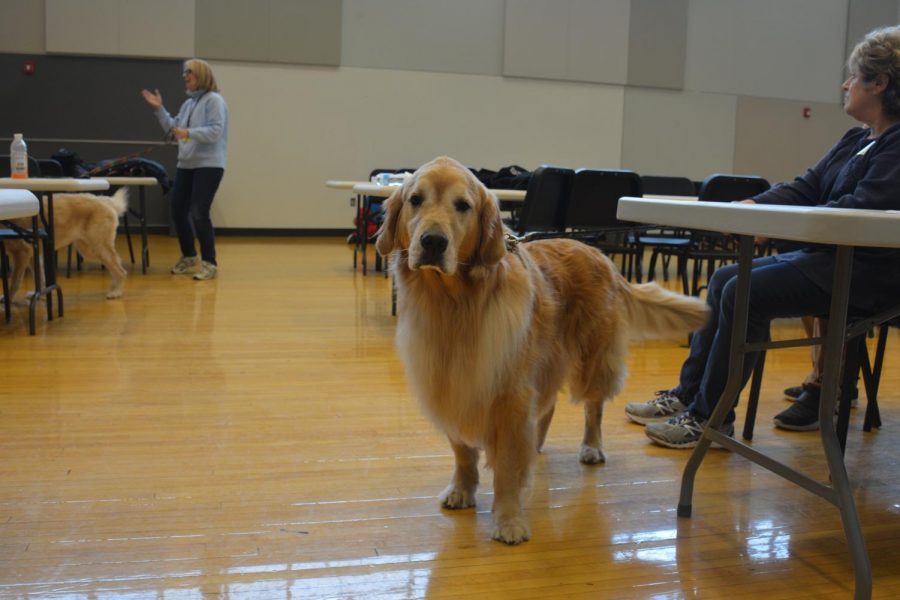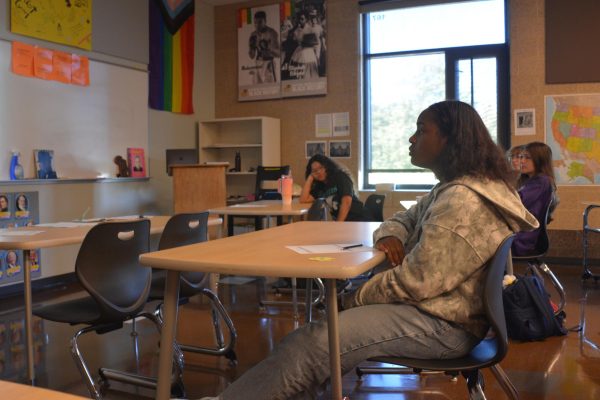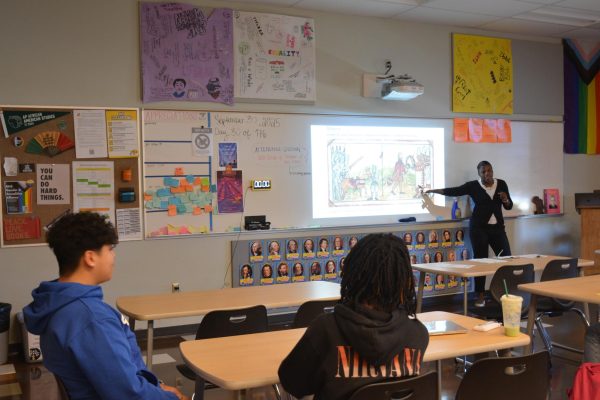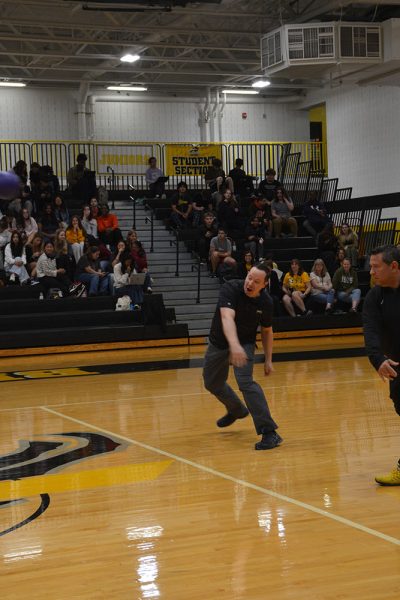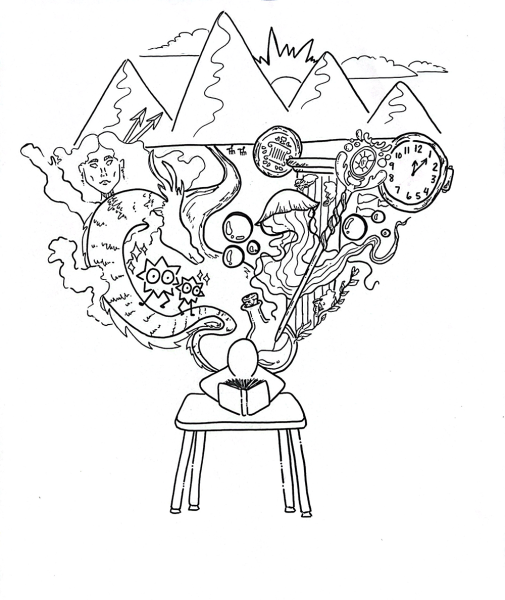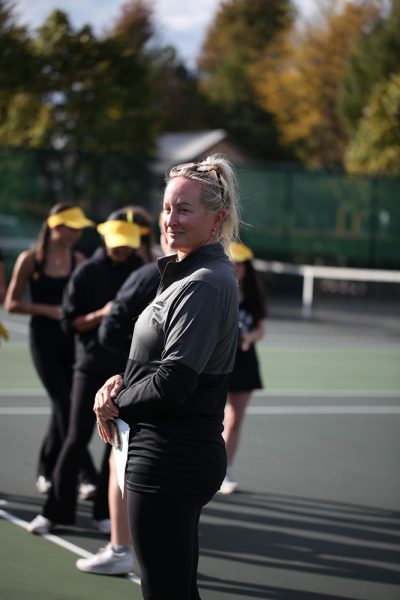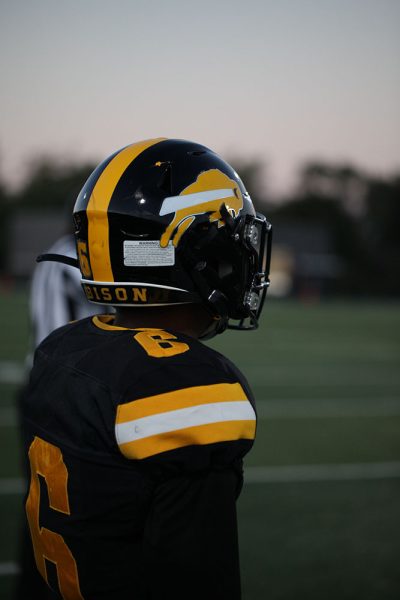Staff Addresses Student Mental Health Needs
Photo from bcomber archives by Nicole Breger
Students enjoyed a visit from therapy dogs during December exams.
Staff members organized a series of mental health activities before winter break to help reduce stress during midterm exams. The events included visits from therapy dogs, a “mindful meditation” session and exercise routines with Sergeant Richard Cruz of the US Army.
Dr. Miriam Mandel ran the “mindful meditation” session and has worked with Beachwood before. She gave a presentation to parents about the physiology of the teenage brain last year, and she also described ways to improve one’s mental health at this year’s leadership conference. She explained the process of meditation to reduce stress.
“It’s basically learning some different breathing and stress reduction techniques to use, especially during really high-stress times like midterms or final exams,” Mandel said. “…These techniques are just so simple, and if you just take a few minutes to learn them and practice them, then when the time comes, they’ll be there.”
Mandel explained other ways to help reduce stress as well.
“Exercise is a great [technique, and] getting enough sleep is a great one, although I know that’s hard,” she said. “And music, dancing, anything that really gets that energy flowing [can help reduce stress].”
“Any time [you feel] low energy or a feeling of hopelessness…getting out there and moving … whether it’s through breathing or exercise [is a good way] to kind of clear it away.”
Principal Paul Chase explained that these activities were organized by guidance counselor Liz Osicki and a group of students. He added that the district has set goals around mental health.
“There are three major district goals that are [shared with] the staff…” Chase said. “One is improving student achievement, another is mental health and the awareness around mental health, and the other is bias awareness training.”
“Mrs. Osicki will initiate different opportunities for students around mental health throughout the year, but…there’s [also] staff training,” he added. “There are some area-wide initiatives that we are working on with other schools as well.”
The staff has also heard from speakers about how to address mental health in the school by providing support and resources.
“If it’s a small thing, how can the teacher provide support in the classroom?” Chase asked. “If it’s a bigger thing, how do you funnel the resources for that person [who’s] struggling with mental health? …That’s what these presenters do, they come in and they…teach the staff and– mainly teachers–different strategies to address mental health in their classrooms.”
One of the speakers, Laura Serazin from Cornerstone of Hope, can help train teachers in many different areas of mental health support.
“She presented to the staff back in November,” he said. “[When] she trains people… [she emphasizes that] mental health is everybody’s responsibility.”
In the classroom, teachers will be starting a “circles” activity to initiate open conversations and build relationships.
“It sounds very, very simple, but a circle is a relationship-building activity where teachers are training to ask a series of questions,” Chase said. “The questions [can be] very light, like ‘Hey how was your winter break?’”
“We’re going to train a group of teachers in the ninth grade this year,” he added. “We’re going to start slow and build it out, but…we’re looking [to run circles] every block day for about 10 minutes.”
Another upcoming mental health initiative will be a mental health summit on March 5 that will include all 22 schools in the Chagrin Valley Conference.
Athletics Director Ryan Peters, who helped organize the summit, explained what activities will take place.
“[I]n recent years I’ve learned a lot more, and I feel that there are a lot of people who need to … get a good understanding of what mental health is,” he said. “[For example,] what is anxiety? What is depression? How do they trigger? How do we help kids and how do we help [staff]?”
“We have a full day prepared to help educate [ourselves on mental health],” he added.
The full-day summit is geared towards school administrators, guidance counselors and school psychologists.
Peters explained the plan to begin the conversation about mental health with school board members and administrators first.
“If you start it at the teacher level…I don’t think the message would feel the same way,” he said. “I think if you’re going through the superintendents and the school board members, they’re going to drive it home and say ‘We have to do this, we have to do better.’”
The summit will be held annually and eventually be extended to teachers and students.
Peters added that the district is organizing a regional crisis team.
If a tragedy occurs in the CVC, the regional crisis team will act as the response team that will go to that school and provide assistance.
“It could be as simple as one of your school psychologists or a guidance counselor going,” Chase said.
“I’m scared for our kids; I don’t know what’s going on in the brains of our students, and I want to know that we are doing everything in our power to not let things repeat, and I want people to understand that there are outlets, there are people to go to, so I’ve spearheaded this,” Peters said.
“The stress that [students] have today is way higher than I’ve ever seen in my lifetime…so [I want to do what I can] as an educator and as an administrator to alleviate some of the [stress],” he added.
Students are also involved in spreading awareness on the topic of mental health. Senior Amanda Leizman runs the Health and Wellness Club and explained some of its goals for the year.
“We’re planning a student mural in the lunchroom that will be on one of the walls in the cafeteria…” she said. “…Right now we’re thinking of [making] a tree [and] having everyone stamp something on and sign their name so everyone can contribute to it in some way.”
“We want to leave a message of positivity and something that will improve inclusivity,” she said. “We want to give everyone a feeling that they belong and that they’re part of the school.”
The club is also planning a student advisors program to help freshmen with their transition to high school.
“It’s basically going to be what LINK leaders do, but it’s going to be an expanded role throughout the year where freshmen will have upperclassmen mentor them…in maybe eight to ten different meetings throughout the year,” Leizman said.
Both Peters and Chase advise students to reach out to a trusted adult when they need help.
“First of all, [students] cannot hide [any problems they are coping with]. If they are going through something, they need to talk about it,” Peters said. “Talk to a trusted adult. I always hope that it’s the parent first because that’s who they’re living with. If they don’t feel like they have a trusted adult in their house, then they need to find a trusted adult in the school.”
“I’m accessible 24/7 for students,” he added. “If a student is having a tough time, send me an email. Let’s talk …I’ve talked to many kids over the years, and sometimes a kid just needs a pat on the back…and I don’t think we do that enough.”
“[Most importantly,] we are always here to talk,” Chase said. “Just having someone with a different perspective to speak to can really ease the mind and calm the person down, so always seek out help…because if we know…we can help.”
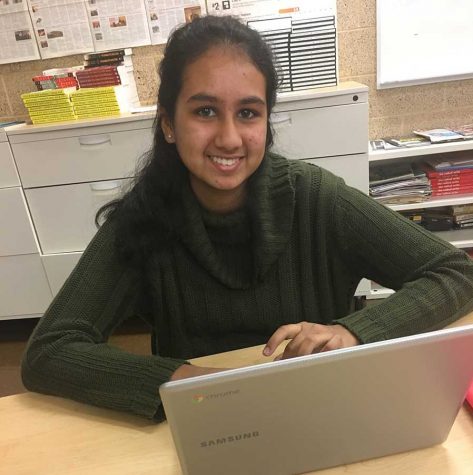
Prerna Mukherjee has been writing for The Beachcomber since the fall of 2016. She covers a variety of school and community events. In her free time, Prerna...



